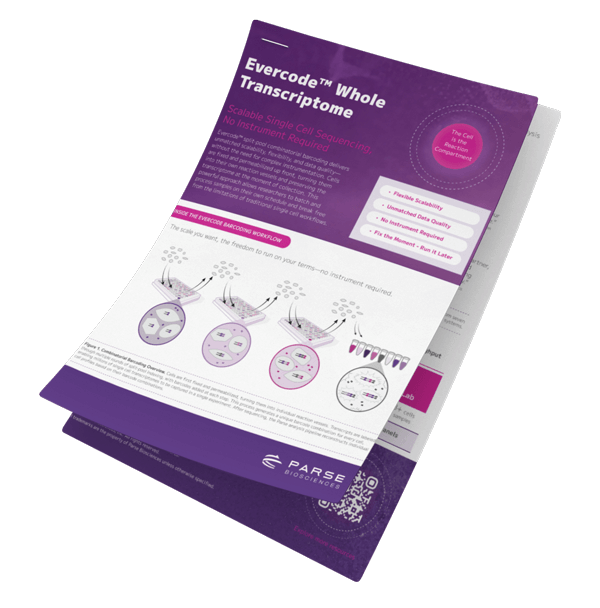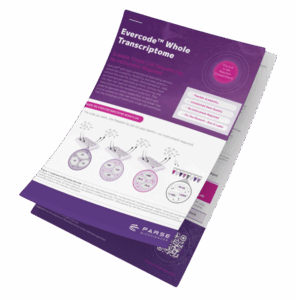
Evercode™ split-pool combinatorial barcoding delivers unmatched scalability, flexibility, and data quality— without the need for complex instrumentation.
Scalable Single Cell Sequencing with Evercode™ Whole Transcriptome
- Flexible Scalability
- Unmatched Data Quality
- No Instrument Required
- Fix the Moment – Run it Later
A Better Way to Do Single Cell Sequencing
The Evercode workflow combines fixation-based prep, flexible scaling, and intuitive analysis built to work the way researchers do.

We're your partners in single cell
Reach out for a quote or for help planning your next experiment.
